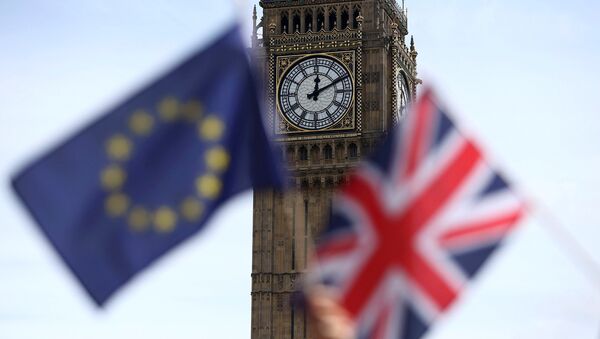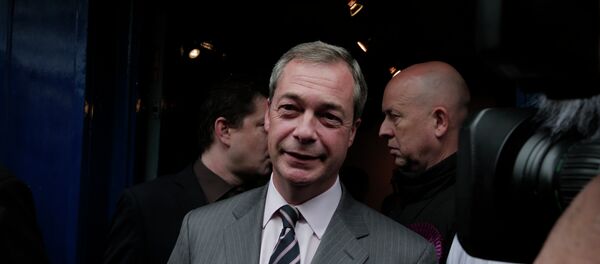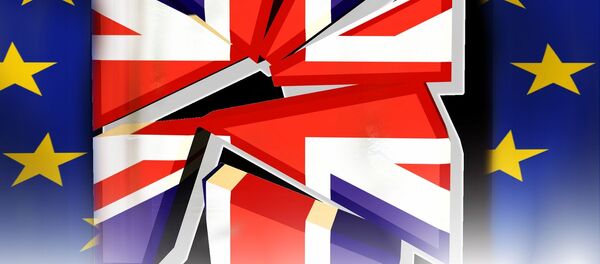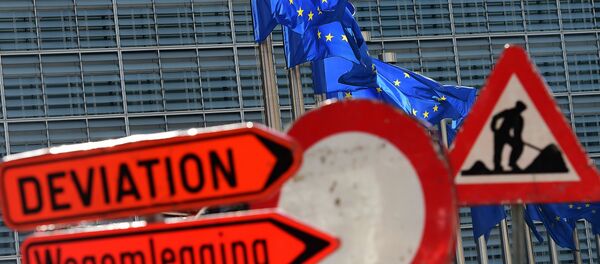"The EU will still consist of 28 member states, as I expect a new independence referendum in Scotland, which will then be successful. We should respond quickly to an application for admission from the EU-friendly country," Gunther Krichbaum, chairman of the European affairs committee in the German Parliament, told the Welt am Sonntag newspaper.
Furthermore, President of the European Commission, Jean-Claude Juncker had a spat with leader of the UKIP Party, Nigel Farage in the European Parliament.
"You were fighting for the exit, the British people voted in favor of the exit. Why are you here?" Juncker asked Farage.
At the same time, London is not rushing to begin the withdrawal procedure. Prime Minister David Cameron promised to immediately trigger Article 50 of the Lisbon Treaty if the people would vote to leave. However, now Cameron is taking his time.
Probably, London hopes that a several-month delay will help to find a way to remain in the EU. However, Paris, Berlin, and Brussels are against such a scenario. German Chancellor Angela Merkel said that any delays would be too costly for European economies and called to speed Britain’s withdrawal.
On Tuesday, the European Parliament passed a resolution calling on the British government to "respect its people’s democratic decision via a swift and coherent implementation of the withdrawal procedure, i.e. by activating Article 50 of the Treaty on European Union so as to allow withdrawal negotiations to start as soon as possible."
"Europe can move on without Britain. It also needs to reform, but exactly how no one knows. Some believe Europe should play a bigger role and be more independent. Whether Merkel is able to move in this direction remains to be seen," former MEP Guilietto Chiesa told Radio Sputnik.
EU leaders understand that now the EU will have to live without Britain, tackling a number of new challenges.
"The absence of clear perspectives and ideas for the European integration project would only deepen the crisis within the EU and finally may result in Nexit, Frexit and further disintegration of the bloc."
This is why France, Germany, and Rome have worked out a plan to resolve the current EU crisis. The nine-page document entitled "A strong Europe in a world of uncertainties" was presented at the EU summit.
"To prevent the silent creeping erosion of our European project we have to be more focused on essentials and on meeting the concrete expectations of our citizens," French Foreign Minister Jean-Marc Ayrault and his German counterpart Frank-Walter Steinmeier said in the document, according to Reuters.
The two ministers underscored that it was important to recognize that EU member states had different appetites for deepening integration.
In fact, this plan is the revival of the old idea of "a multi-speed Europe." This is the idea that different parts of the EU should integrate at different levels and pace depending on the political situation in each country. The conception means forming different integration cores within the bloc.
"Intensification of multi-speed integration will be the common trend in the EU. There will be a group of Western European states, with the highest level of integration. There will also be peripheral countries, with different levels of integration," specialist in European affairs, Dmitry Suslov told Expert.
"They may also be joined by Poland. But Poland will lead the policy in Eastern Europe, but will be peripheral in terms of integration level," Suslov said.
As for Russia, the development of the European integration will be in its interests. There are three main reasons for this, the article read.
First, Europe is Russia’s biggest trade partner. Second, if Europe becomes more stable it will focus on its own, independent policy towards Russia. Third, if Brussels is busy with its own reforms it will not waste time on political adventures against Russia. Finally, the EU would have to normalize ties with Russia, the article concluded.





